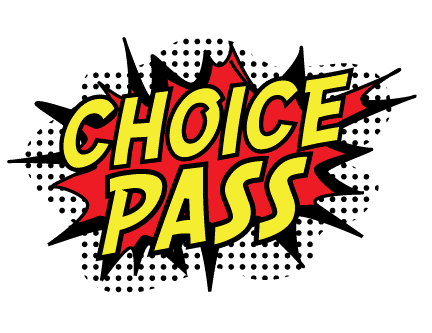Online Parent Education
Pick one of the recorded parent education sessions or documentaries to watch and complete the survey to meet the program requirements.
To be eligible for 2020-2021 you must complete your parent education by June 30, 2020.
Inside The Teenage Brain PBS Frontline Documentary - “It's the mystery of mysteries -- especially to parents -- the unpredictable and sometimes incomprehensible moods and behaviors of the American teenager. Generations of adults have pondered its cause. Hormones? Rock music? Boredom? Drugs? In "Inside the Teenage Brain," FRONTLINE chronicles how scientists are exploring the recesses of the brain and finding some new explanations for why adolescents behave the way they do. These discoveries could change the way we parent, teach, or perhaps even understand our teenagers.”
Risky Drinking Documentary - “From Oscar and Emmy winner Ellen Goosenberg Kent (HBO’s Crisis Hotline: Veterans Press 1 and Alive Day Memories: Home from Iraq) and journalist/producer Perri Peltz (HBO’s The Education of Dee Dee Ricks and Remembering the Artist Robert De Niro, Sr.), and presented with support from the National Institute of Alcohol Abuse and Alcoholism, Risky Drinking takes a case-study look at the hazards of alcohol use and details the ways the medical community views and treats risky drinkers.”
**Available on HBO.
Helping Parents and Teens Talk Sex, Consent, and Healthy Relationships - Listen to a radio interview with Shafia Zaloom a sex educator.
“For San Francisco health educator Shafia Zaloom, an education in consent is essential to protecting kids and fostering healthy interactions. In her new book "Sex, Teens, & Everything in Between," Zaloom shares stories and advice to help parents and teens navigate relationships, sex, and personal safety. We'll hear tips from Zaloom based on her more than two decades of experience and we want to hear from you: how have you talked with your teen about sex?"
Early Adolescent Development - Kari Commerford: This workshop addresses the developmentally appropriate changes and challenges that youth experience during adolescence. Focus will be placed on neurobiological (structural, hormonal and neurotransmitter), social-emotional (identity formation and physical vs. emotional high risk behaviors), and cognitive changes (adolescent egocentrism). We will discuss how these developmentally appropriate changes and challenges can lead to high risk behaviors and substance use and mental health concerns. Education on Adverse Childhood Experiences and Toxic Stress will also be included. Ages covered are 11-15.
The 10 Tasks of Adolescent Development - Kari Commerford: This presentation will explore the 10 tasks of adolescent development and ways to support youth through these transitions. Focus will be on late adolescence (15-20). Topics to be addressed include; sexual maturation, developing and applying coping skills, emotional regulation, identity and friendships and renegotiating relationships with parents.
Sources of Strength in Gunnison County - Alyssa Ware & Charlotte Leonard: “Sources of Strength is one of the first suicide prevention programs that uses Peer Leaders to enhance protective factors associated with reducing suicide at the school population level.” Learn more about Sources of Strength, how it has been implemented in the Gunnison Watershed RE1-J school district and a Western Colorado University, and risk and protective factors faced by our youth.
**Two videos shown in the presentation have no sound. Below are the links.
COMING SUMMER 2020!
How to Have Trusted Adult Conversations about JUULs, Electronic Cigarettes, Nicotine and Vaping - Kyle Tibett, Betty Sue Gurk & Emily Mirza: This workshop will summarize national, state and local data, trends, and culture of youth use for electronic nicotine devices, e-cigarettes, and vaping. Explain the policies, laws, and health effects related to vaping. Use trusted adult principles to have conversations with young people the use of electronic nicotine devices, e-cigarettes, and vaping. Educate on community resources that support youth prevention and cessation. If you attended last year there will be some repetition with the trusted adult portion but new data, trends, and health effects will the shared.
You will need to download these documents to guide you though the workshop.

